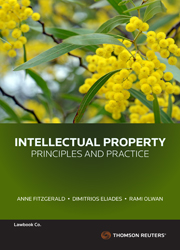Call for
Papers
Religious Freedom, Sexuality and Gender Identity
Recent events,
including the introduction of the Human Rights Amendment Bill 2022, have
placed the
interaction between sexuality, gender and religious belief at the
centre of public attention.
The debate surrounding this measure takes place
within a broader conversation on acceptance of LGBTIQA+ communities, religious
freedom, and the role of discrimination law in our society.
The Colloquium: The Law, Religion, and Heritage Research Program Team in the University of Southern Queensland is hosting a scholarly
colloquium on Religious Freedom, Sexuality, and Gender
Identity.
Date: Friday 28 October 2022
Venue: USQ Toowoomba Campus | Q
Block | Q501 and Q502 (physical attendance is warmly encouraged, but a Zoom option will be available)
Keynote
Speakers: Professor Patrick Parkinson and Professor
Anthony Gray
Invitation: At the colloquium, academics are invited to provide
scholarly presentations that address the intersection of sexuality, gender
identity, and religious belief in a legal
context.
What is required to participate? Presentations should be 15-20 minutes in duration, with time for questions
to follow. Presentations must be supported by a completed paper or
work-in-progress suitable for distribution to other participants. The
opportunity to contribute to a special issue of the Australian Journal of
Law and Religion may become available after the colloquium.
Are you interested in contributing? Please register your
interest in presenting at the colloquium by contacting Dr Jeremy Patrick jeremy.patrick@usq.edu.au Please include a CV and a brief abstract of the planned paper (100-250
words).
Expressions of interest should be
submitted by 28 August 2022.
The
University of Southern Queensland is committed to the values of diversity,
multiculturalism, and gender equity by fostering an inclusive environment that embraces
difference and supports, values, and respects the unique perspectives and
approaches of all individuals. Please
visit https://www.usq.edu.au/about-usq/values-culture/diversity-inclusion for more information.




























